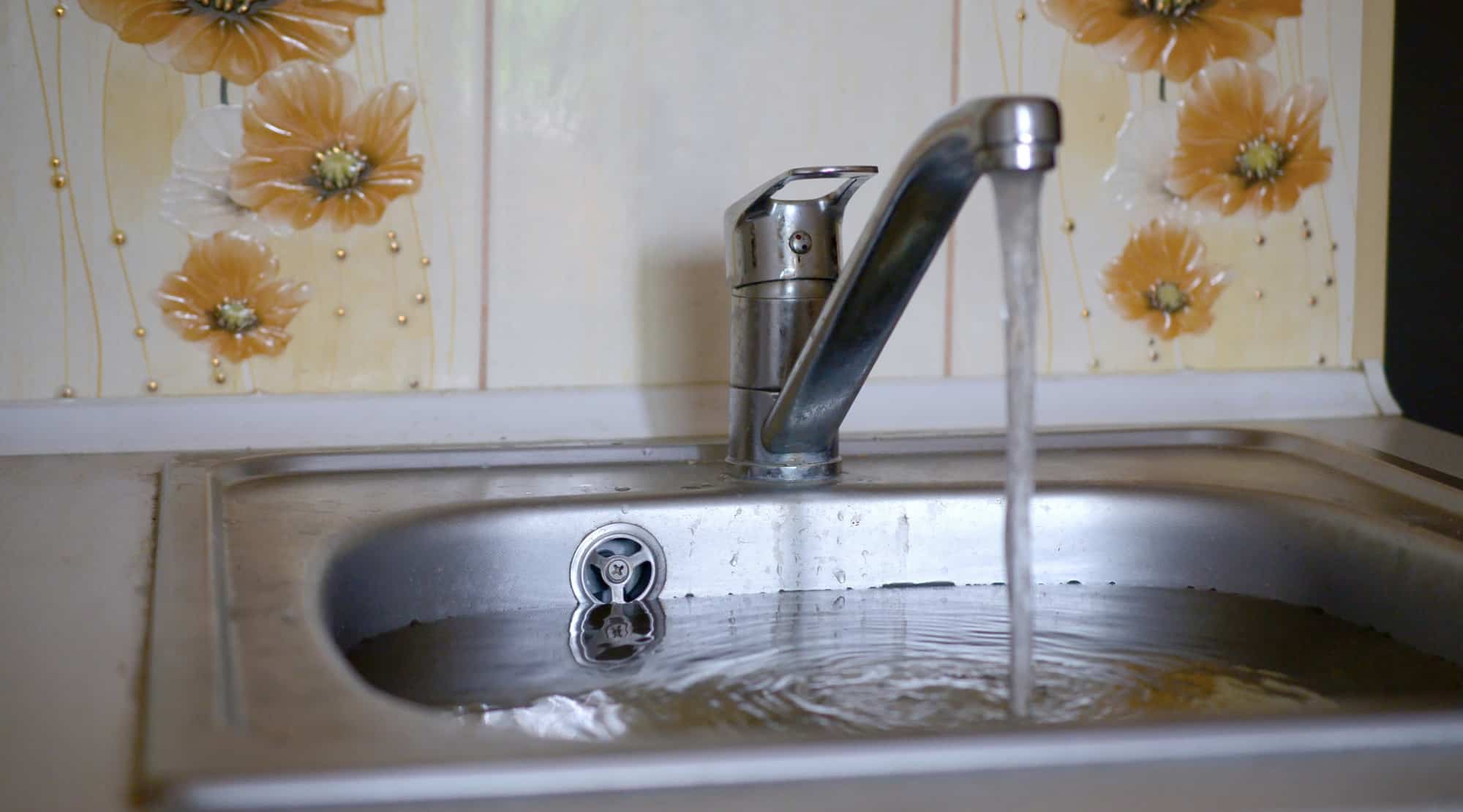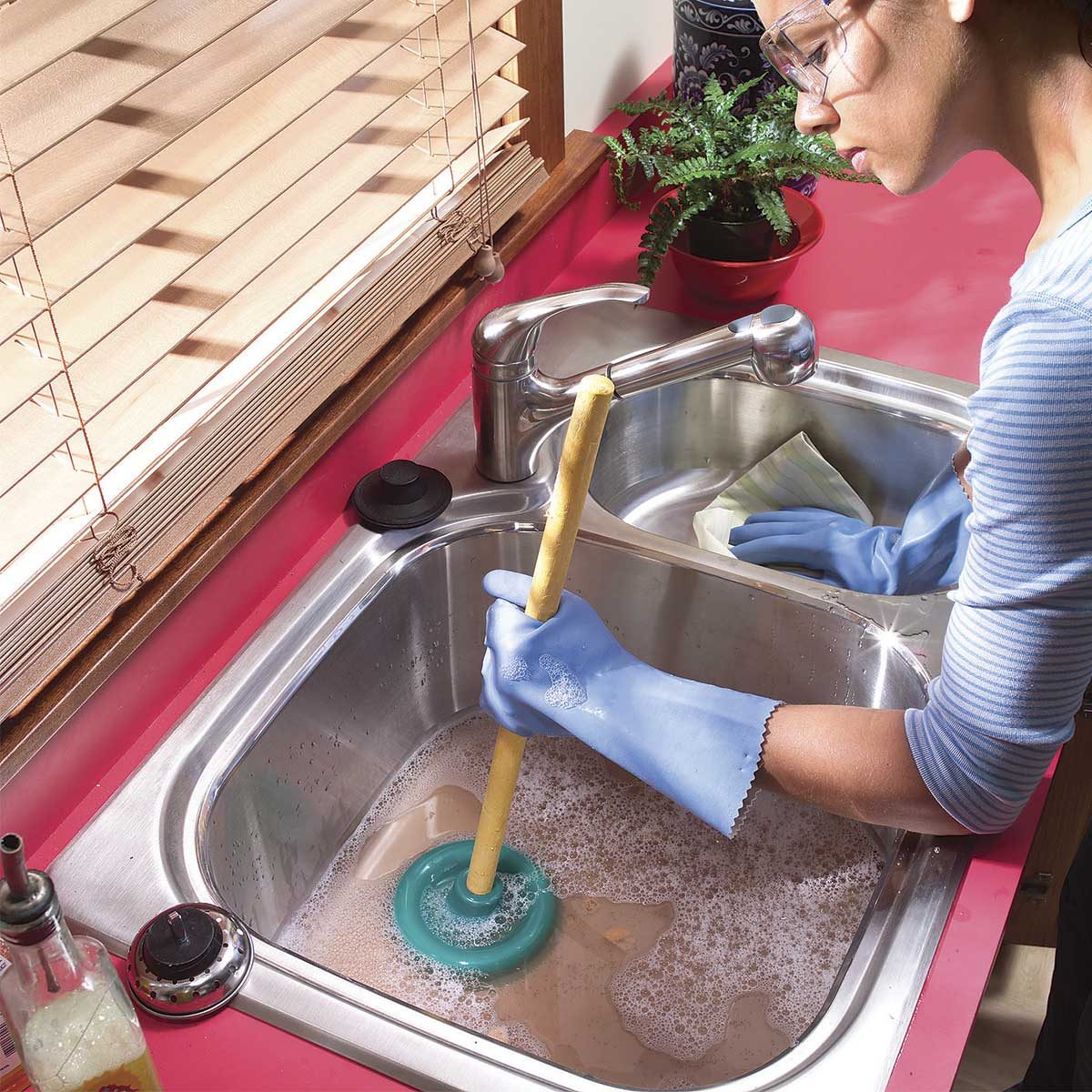Ways To Simply Address A Slow-Draining Sink
Ways To Simply Address A Slow-Draining Sink
Blog Article
What're your opinions about 7 Ways To Fix A Slow-Draining Sink Before You Call A Plumber?

Intro
We have actually all existed: You're brushing your teeth or washing your hands, and you discover the water pooling in the sink. As opposed to promptly swirling down the drain, it lingers, transforming your once-refreshing early morning routine right into a mini swamp scene. A slow-draining sink isn't just bothersome; it's frequently an indicator of bigger pipes issues lurking underneath the surface area. The bright side is that a lot of slow-draining sinks can be taken care of with a little knowledge, a couple of basic tools, and some persistence. Ready to tackle this task head-on? Allow's roll up our sleeves and dive right in.
Comprehending the Sources Of a Slow-Draining Sink
Prior to you start poking around in your pipes, it assists to recognize what could be creating the slowdown. Recognizing the root cause makes it easier to choose the ideal fix.
Devices and Materials You'll Need
The right tools make all the difference. Fortunately, you will not require a completely stocked plumbing technician's van to finish the job.
Step-by-Step Guide to Fixing a Slow-Draining Sink
Currently, allow's enter into the nitty-gritty. This step-by-step process will certainly guide you with simple methods to recover your sink's water drainage.
Step 1: Get Rid Of and Tidy the Stopper
Often, the stopper (that little plug you push down to obstruct water) is the very first offender. Remove it carefully and wipe any hair or substance entraped around its base. Rinse it extensively before putting it back in place.
Step 2: Utilize a Bettor to Displace Particles
Got that bettor ready? Setting it over the drainpipe and give it a few company pumps. The idea is to produce suction that can loosen any type of obstruction. If you see little bits of particles floating up, you get on the appropriate track.
Action 3: Try a Drainpipe Serpent or Wire Hanger
If the bettor does not do the trick, it's time to bring out the drain serpent. Delicately feed it right into the drainpipe and spin as you go. You could really feel some resistance-- that's most likely the obstruction. Maintain turning and drawing up until you remove the obstruction. If you don't have a drainpipe serpent, a corrected the alignment of cable wall mount can operate in a pinch.
Step 4: Apply a Do It Yourself Drainpipe Cleanser
An all-natural cleaner made from cooking soft drink and vinegar can break down recurring grime. Pour half a mug of cooking soda right into the drainpipe, complied with by half a cup of vinegar. Let it fizz for around 15 mins, after that flush with hot water. This chemical reaction often does wonders for minor obstructions.
Tip 5: Reassemble and Check the Sink
Placed every little thing back with each other and run the tap. Does the water currently swirl away at a respectable speed? If yes, provide on your own a pat on the back. Otherwise, do not anguish-- there are still a couple of even more dress up your sleeve.
Crucial Devices for Do It Yourself Fixes
A plunger is your best beginning factor. A little, sink-sized plunger creates suction that can displace small obstructions. For more persistent blockages, a drainpipe snake (in some cases called a plumbing's auger) functions wonders. A pair of handwear covers, a flashlight, and possibly a pair of protective goggles are likewise convenient.
Recommended Cleansing Solutions
Moderate meal soap and hot water can assist break down greasy build-up. A mix of baking soda and vinegar is a time-tested home remedy, and enzymatic cleansers use an even more green strategy. Maintain chemical drain cleansers as a last resort, as they can be harsh on your pipelines.
Usual Wrongdoers Behind Slow Drain
So, what's clogging points up? Usually, it's a mix of day-to-day particles-- assume hair, soap residue, toothpaste residue, and remaining food fragments. In time, these tiny bits collect and cling to the pipeline wall surfaces, slowly tightening the flow and making it harder for water to pass through. In some cases, natural resource from tough water can additionally add to the substance, producing the excellent tornado for persistent obstructions.
When is it Time to Do Something About It?
If you discover the water draining slower than common, it's a great idea to interfere earlier rather than later. Waiting also long can cause complete obstructions, undesirable odors, and even pipe damages. If the water takes more than a couple of seconds to clean out after shutting off the faucet, consider it a warning and prepare to place on your do it yourself hat.
Safety And Security First: Precautions and Preparations
Before you launch into unclogging mode, think of safety and security. You're handling potentially filthy water and particles, so slip on a pair of gloves. If you're using chemical cleaners, guarantee the room is well-ventilated and follow the instructions on the label.
Protective Gear and Workspace Setup
Put down some old towels or cloths around the sink area to catch splashes. Eliminate any type of things that could enter your method, like soap dispensers or tooth brush holders. Make sure you have good illumination-- get a flashlight if required.
Alternate Techniques for Stubborn Clogs
Not all obstructions are created equivalent. If your sink still refuses to cooperate, take into consideration these alternate remedies.
Baking Soda and Vinegar Approach
We already touched on this, however it deserves keeping in mind again. This gentle, eco-friendly technique is much safer than chemical cleansers and usually rather effective.
Enzymatic Drain Cleaners
Enzyme-based cleansers make use of all-natural germs to absorb organic matter. They're an outstanding option if you're seeking to prevent rough chemicals. Simply bear in mind, they might take a bit longer to work their magic.
Chemical Drain Cleaners: Pros and Cons
Chemical cleaners can blow up via hard clogs quick, but they're not without downsides. They can generate warmth and fumes, damage pipelines if utilized excessively, and posture environmental risks. Utilize them moderately, and always adhere to the instructions very carefully.
Safety Nets to Keep Your Sink Flowing
Avoidance is the very best treatment. By embracing a couple of easy routines, you can keep your sink from decreasing to begin with.
Regular Cleaning Routines
Clean down the sink basin and fixture location on a regular basis. Remove hair or food bits before they have a possibility to wash down the drain.
Staying Clear Of Hazardous Substances Down the Drain
Reconsider before disposing coffee premises, grease, or coarse veggie scraps down the sink. These wrongdoers hold on to pipeline wall surfaces, developing obstructions in time.
Routine Upkeep Checks
Arrange a quick monthly evaluation. Run hot water via the sink for a few minutes, taking notice of the flow. If it appears slow-moving, act fast prior to it becomes a full-blown obstruction.
When to Call a Specialist Plumbing Professional
In some cases, despite how hard you try, that block just will not budge. That's when it's time to generate the pros.
Indications That Suggest an Extra Severe Concern
If your sink drains slowly regardless of several efforts, or if you discover water supporting in various other components (like your shower or toilet), you might have a much more serious plumbing problem hiding much deeper in the system.
Stabilizing DIY Efforts with Specialist Help
While do it yourself can conserve you cash and provide a sense of accomplishment, there's no shame in calling a specialist. An expert plumbing professional can examine your entire plumbing configuration, making certain there's no underlying damages or lasting problem that can cost you a lot more in the future.
Comparing Prices and Long-Term Solutions
Prior to deciding, take into consideration the big picture. An economical, quick fix could resolve the trouble momentarily, yet buying a more irreversible service might conserve you cash and stress and anxiety over time.
Weighing the Costs of Do It Yourself vs. Specialist Fixes
DIY repairs frequently cost bit more than the cost of a bettor or a container of baking soda. Expert solutions, on the other hand, featured a price tag but might avoid repeated problems and expensive repair work later.
Purchasing High Quality Fixtures and Upgrades
If your sink's style contributes to constant obstructions, it could be worth upgrading to higher-quality fixtures or modifying the plumbing format. Consider this a financial investment in your house's performance and comfort.
Verdict
A slow-draining sink can feel like a minor irritation, however it's commonly a sign that your pipes requires a little TLC. By comprehending the root causes, utilizing the right tools and techniques, and committing to straightforward safety nets, you can keep your sink streaming easily. And when all else stops working, never ever wait to call a professional-- your home's pipes deserves the investment in care and upkeep.
Three Common Ways to Fix a Slow Drain
Baking Soda Method
Boil a full pot of water. Measure out cup of baking soda and pour it down the drain. Then take cup of the magical cleansing substance known as white vinegar and drop that down there too. Allow the mixture to fizz in the drain for five minutes as the vinegar and baking soda combine. Now dump in that whole pot of boiling water. This combination of cleaning substances should clear out anything that is causing your sink to drain slowly. If it doesn t...
Zip-It
If the baking soda method doesn t clear out your drain, it may be because a significant amount of hair and/or other debris has collected there and you need to remove it. Purchase a Zip-It tool at any home improvement or hardware store and insert it into your drain. It will catch any collected hair or debris that s blocking the flow of water. Pull it out. If it s got a big clump of hair, etc. on the end, you ve probably got your culprit.
Drain Cleaner
If these methods don t work, there is the standard drain cleaner that you can also buy in a hardware store or even your local grocery store. It s better if you can use a household solution, but these drain cleaners often work in a pinch. They re very simple to use. You generally just dump them in your drain and wait. If even this method is not effective, it may be time to call the plumber.
https://www.mrrooter.com/oneida/about-us/blog/2017/july/three-common-ways-to-fix-a-slow-drain/

As a keen reader about 4 Tips to Fix a Slow Draining Sink, I thought sharing that short article was smart. Are you aware of another individual who is intrigued by the niche? Take a moment to promote it. We thank you for your readership.
Get A Free Quote Report this page